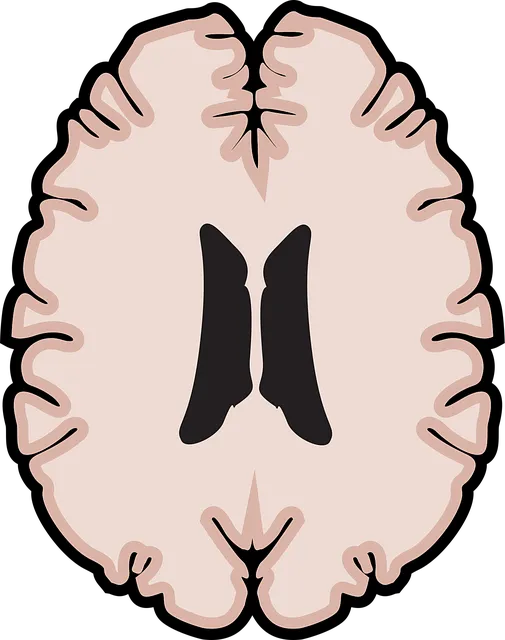Mindfulness meditation, gaining popularity for its modern benefits, enhances mental and physical well-being by promoting present-moment awareness and non-judgmental attention. Regular practice leads to stress reduction, improved life satisfaction, emotional intelligence, and better communication. Kaiser's inpatient mental health services offer tailored guidance, especially for healthcare professionals, using evidence-based treatments and innovative practices for holistic healing. Integrating mindfulness into daily life through simple practices like breathing exercises or mindful chores can reduce stress over time, with resources available from Mental Wellness Podcast Series Production and Risk Management Planning.
Discover the transformative power of mindfulness meditation with our comprehensive guide. From understanding its core principles to unlocking profound benefits, we demystify this ancient practice. Learn the golden rules for effective mindfulness meditation and explore how Kaiser’s inpatient mental health programs integrate this technique. Gain practical tips to seamlessly incorporate mindfulness into your daily routine, enhancing well-being and stress management. Uncover the secrets to a more balanced life through mindfulness, backed by expert insights.
- Understanding Mindfulness Meditation: Unlocking the Benefits
- The Golden Rules for Effective Practice
- Kaiser's Inpatient Mental Health Programs: What You Need to Know
- Integrating Mindfulness into Daily Life: Practical Tips and Techniques
Understanding Mindfulness Meditation: Unlocking the Benefits

Mindfulness meditation is a powerful practice that invites individuals to cultivate present-moment awareness and non-judgmental attention. It involves observing one’s thoughts, emotions, and bodily sensations without attachment or reaction, allowing for a deeper understanding of oneself and one’s experiences. By simply focusing on the here and now, mindfulness offers a path to unlock profound benefits for both mental and physical well-being.
This ancient practice has gained modern popularity due to its ability to enhance emotional intelligence, boost confidence, and improve communication strategies. Research suggests that regular mindfulness meditation can reduce stress, anxiety, and depression while increasing feelings of calm and overall life satisfaction. Moreover, it encourages self-acceptance, fostering a sense of balance and clarity in navigating life’s challenges. With dedicated practice, individuals may discover improved relationships, enhanced concentration, and a greater ability to navigate difficult emotions, ultimately leading to a more peaceful and fulfilling life.
The Golden Rules for Effective Practice

For effective mindfulness meditation practice, there are several golden rules to keep in mind. Firstly, consistency is key. Aim to dedicate a set time each day for your practice, as regular sessions build strength and endurance in your mental muscle. Secondly, create a peaceful environment. Find a quiet space free from distractions where you can be fully present and immerse yourself in the experience. The Golden does Kaiser have inpatient mental health services can provide valuable insights into effective meditation practices tailored to individual needs, especially for those dealing with stress or burnout, a common concern among healthcare providers as explored in a Mental Health Policy Analysis and Advocacy.
Additionally, remember that patience is paramount. Meditation is not about achieving perfection but about cultivating awareness. It’s normal to experience distractions; gently guide your focus back to the present moment without judgment. This approach supports Burnout Prevention Strategies for Healthcare Providers by offering a healthy coping mechanism and promoting self-care practices. Through regular, mindful practice, you can improve your overall mental health and well-being.
Kaiser's Inpatient Mental Health Programs: What You Need to Know

Golden does Kaiser have inpatient mental health programs? Yes, Kaiser, a renowned healthcare provider, offers comprehensive inpatient mental health services across its network. These programs are designed to provide intensive care and support for individuals experiencing severe mental health crises or complex conditions that require close monitoring and specialized treatment.
Kaiser’s inpatient mental health programs focus on a holistic approach, integrating medical, therapeutic, and support services to promote emotional regulation and mental wellness. Patients have access to expert psychiatrists, psychologists, and counselors who offer evidence-based treatments tailored to individual needs. Additionally, these programs often incorporate mental wellness journaling exercise guidance, community outreach program implementation, and other innovative practices to enhance the overall healing experience.
Integrating Mindfulness into Daily Life: Practical Tips and Techniques

Integrating mindfulness into daily life is a powerful step towards enhancing mental wellness. It’s not about setting aside dedicated time for meditation in a silent room, but rather, embracing moments of awareness throughout your day-to-day activities. Start by paying attention to your senses; notice the taste of your food, the sound of traffic, or the feel of sunlight on your skin. These simple acts can cultivate a deeper connection with the present moment.
Practical tips include setting aside just 5 minutes each morning or evening for mindful breathing exercises, engaging in mindful walks where you focus on each step and the environment around you, or even incorporating mindfulness during tasks like washing dishes or brushing teeth. Over time, these practices can contribute to emotional healing processes, as they foster a sense of calm and reduce stress. For those seeking more guidance, Mental Wellness Podcast Series Production offers valuable resources, while Risk Management Planning for Mental Health Professionals ensures practitioners stay equipped with tools to navigate complex situations effectively.
Mindfulness meditation, as detailed in this article, offers profound benefits for mental well-being. By understanding its core principles, adhering to effective practice guidelines, and integrating it into daily life, individuals can unlock a sense of calm and clarity. Moreover, Kaiser’s inpatient mental health programs provide valuable resources for those seeking comprehensive care. Remember that the “golden” rules discussed here serve as a foundation, and with consistent effort, anyone can harness the transformative power of mindfulness meditation to enhance their overall well-being, just as Kaiser’s services aim to do for their patients.






